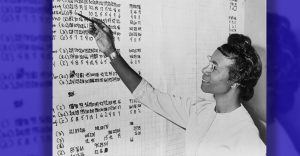Politics
NFL Draft Week: How Does it Impact Black Chicago?

Tampa Bay Buccaneers fans cheer after the Buccaneers selects Florida State quarterback Jameis Winston as the first pick in the first round of the 2015 NFL Draft, Thursday, April 30, 2015, in Chicago. (AP Photo/Paul Beaty)
by Mary L. Datcher
Special to the NNPA from the Chicago Defender
The prospect of a child developing his or her talent and potential is the dream of most parents. It is the glue that can hold not only a household together, but also a community. In African-American history, the dreams of many young Black youth center on athletics and entertainment. The goals of achieving fame in athletics or entertainment often overshadows dreams about other important professions such as becoming a teacher, an attorney, a physician, an engineer or a sports agent. Many of these professions lay the foundation for building a solid base.
The estimated revenue of the NFL Players’ Association is $327 million; however, in real numbers, overall among the 32 league teams, the combined total is an estimated $10 billion dollars. Players’ salaries can range from the minimum of $400,000 to over $22 million driving the league to produce much more revenue than the other professional athletic associations. Often, young men become overnight millionaires, catapulting their careers and lifestyles in a world that is inaccessible to their peers.
This week, Chicago will host for the NFL Draft week festivities. The city hasn’t had this honor since the 1964 draft was held here. Back in the day, the draft was a simple 24-hour process between rival team owners selecting collegiate stars for their team rosters. Now, it has become a major week-long production that rivals the same media production as Super Bowl but without the quirky, high priced commercials and half-time fanfare. How does the local economy benefit outside of the hospitality industry centralized in the immediate downtown and Michigan Avenue shopping district? The better question is how does the business economy benefit in the same communities that some of the Black athletes are from?
This major task of solidifying the tourism and attraction business is led by Choose Chicago, the nonprofit organization that is responsible for raising funds and private donations under the close management of the City of Chicago. Chicago Defender reached out to Choose Chicago to request an estimated dollar amount that is projected from the NFL Draft week festivities going to local businesses and the hospitality industry, but the request has gone unanswered. Since the Defender couldn’t nail down any projections on ROI (return of investment) from them, the next concern is how does this event benefit the young Black student players from the inner-city community?
In negotiation with the NFL Association, one of the main attractions was the city’s eagerness to offer up parkland to build ‘Draft Town’ – the beautifully decorated tent housing situated on prime property in Grant Park. This location is a wonderful way for the public to connect to the activities surrounding draft week and it’s free for those who attend. There are youth clinics that have invited key youth football programs and their top young players to participate, but how many of these camps are based in the inner-city versus suburban area camps?
Chicago Jokers Football Camp is a program that has groomed young players from ages 8-14 years old for the past 14 years on the West Side. The program is run by Eric McClendon, affectionately known as Coach Mac, who utilizes the St. Lutheran Church gym every Saturday for the Spring and Summer camp schedule. With close to 100 students in the football camp, he makes sure his players are treated with just as much respect and priority as more high profile youth football camps.
“You have your suburban Blacks and you have Black people based in the city. The majority of the professional athletes are from the suburbs. They really won’t go to the city areas or the agents won’t allow them to pursue the inner city programs. If there is someone who can reach out to the professional athletes or to the NFL to let the players know about the inner city kids, it would benefit players and the parents. Even though the kids are from the inner city, they do look up to the professional ball players,” said McClendon.
There hasn’t been much of an outreach initiative from the NFL Association or the City of Chicago to involve inner city football camps such as the Chicago Jokers. With basketball being the focus and direction to help curve some of the violence that has plagued Black communities, football can sometimes take a backseat. Coach McClendon feels that some of the city’s best young high school basketball players had their initial athletic beginnings playing in youth football camps.
Coach McClendon explains, “A lot of our kids play basketball when they move on to high school. The number one high school basketball player last year was Cliff Alexander from Curie High School. He was one of our lineman on offense and defense when he played for us.”
Demetrius Lewis, a parent and athletic director of a South Suburban program, takes a similar approach to working with the players in his program. He started out coaching his son’s team when his son was four years old and took a committed role for the next eight years. Now his son attends Mt. Carmel High School, ranks as one of the top high school football players in Illinois and recently was inducted in the National Honor Society with a 4.0 GPA. Although, he feels the high schools and camps are there for young players, it is ultimately the responsibility of the parents to assist their talented kids with the challenges of facing key business decisions because those decisions will follow them into the hustle of the NFL.
“The role models have to be in the household and we need to educate ourselves– especially in the Black communities. A lot of minorities are behind the eight ball because we really don’t know. Outstanding athletes have scholarship offers all day, but their ACT scores are barely 15 or 16. They don’t know how important it is. They don’t realize they can take the test more than once. They have ACT prep programs out there, but instead they are buying Air Jordans. They can put the monies into an ACT prep program for the same price,” said Lewis.
Many in the business feel that although the NFL draft makes up a high percentage of African American collegiate athletes, it is the responsibility of the NFL Association and the City of Chicago to coordinate community outreach to the football youth camps and inner city programs. Many of the draft hopefuls will be in town from all of over the country for a few days and after a short break, they will soon be adjusting to their new home teams.
No one understands this process better than sports agent Tory Dandy of Relativity Sports which represents both professional and collegiate draft picks. One of his professional clients includes Chicago Bears wide receiver Alshon Jeffrey.
“I hold myself accountable in regards to doing the business with not only the client but anybody who is considered in his inner circle – that is knowledgeable about the NFL draft process. Knowledgeable about the business side of the NFL, the financial side and the blessings of what it brings. I believe in reaching further in-depth about being aware of what’s going on,” explains Dandy.
Dandy has steadily become one of the leading NFL sports agents representing seven NFL draftees in this week’s ceremonies, including #7 ranked Kevin White (West Virginia), #27 ranked Eddie Goldman (Florida State), #30 ranked Ronald Darby (Florida State), #34 ranked Nelson Agholor (Southern California), #84 ranked Paul Dawson (Texas Christian University), #116 ranked Jamison Crowder and #121 ranked Mike Davis (South Carolina); according to CBS Sports the latest draft prospects.
Being one of the few African American agents in the field, Dandy makes no secret that his mentors include sports agent veteran, Eugene Parker.
Dandy adds, “We want to empower them, we want to give them the information and resources to truly make informed business decisions. Our philosophy is a lot different from others in this industry.”
The lives of the young collegiate players that Dandy represents will change before they depart Chicago with the weight on their shoulders to do their best for their new team and for those they are depending on to make them successful. Many of them will not know that approximately 1.5 miles west of the NFL “Draft Town” and 2.5 miles west of the structure are African American communities that will not have the opportunity to celebrate in their achievements.
The City of Chicago and Choose Chicago won’t reveal the amount of expenses involved in bringing the NFL Draft to town or how it will impact the revenue streams. Choose Chicago and the Chicago Sports Commission had to raise between $3 to 4 million to complete commitments to covering the demands that the league has requested. They have made assurances that Chicago taxpayers will not be burdened with the week-long production.
The Mayor’s efforts to secure high profile events such as the NFL Draft week for the beautiful City of Chicago are to be commended, but Black communities and other neighboring communities would also like to feel the unique economic benefits that downtown businesses will experience. When the opportunity arises to secure the NFL Association for the following year’s Draft Week, the “ROI or return on investment” should also include the African American communities from which many of the young players have come.
Activism
Oakland Post: Week of November 26 – December 2, 2025
The printed Weekly Edition of the Oakland Post: Week of November 26 – December 2, 2025

To enlarge your view of this issue, use the slider, magnifying glass icon or full page icon in the lower right corner of the browser window.
Activism
Oakland Post: Week of November 19 – 25, 2025
The printed Weekly Edition of the Oakland Post: Week of November 19 – 25, 2025

To enlarge your view of this issue, use the slider, magnifying glass icon or full page icon in the lower right corner of the browser window.
Activism
Oakland Post: Week of November 12 – 18, 2025
The printed Weekly Edition of the Oakland Post: Week of November 12 – 18, 2025

To enlarge your view of this issue, use the slider, magnifying glass icon or full page icon in the lower right corner of the browser window.
-

 Activism4 weeks ago
Activism4 weeks agoOakland Post: Week of November 12 – 18, 2025
-

 Activism3 weeks ago
Activism3 weeks agoIN MEMORIAM: William ‘Bill’ Patterson, 94
-

 Activism4 weeks ago
Activism4 weeks agoHow Charles R. Drew University Navigated More Than $20 Million in Fed Cuts – Still Prioritizing Students and Community Health
-

 Bay Area4 weeks ago
Bay Area4 weeks agoNo Justice in the Justice System
-

 #NNPA BlackPress3 weeks ago
#NNPA BlackPress3 weeks agoLewis Hamilton set to start LAST in Saturday Night’s Las Vegas Grand Prix
-

 #NNPA BlackPress3 weeks ago
#NNPA BlackPress3 weeks agoBeyoncé and Jay-Z make rare public appearance with Lewis Hamilton at Las Vegas Grand Prix
-

 Activism2 weeks ago
Activism2 weeks agoOakland Post: Week of November 19 – 25, 2025
-

 #NNPA BlackPress4 weeks ago
#NNPA BlackPress4 weeks agoThe Perfumed Hand of Hypocrisy: Trump Hosted Former Terror Suspect While America Condemns a Muslim Mayor


























































